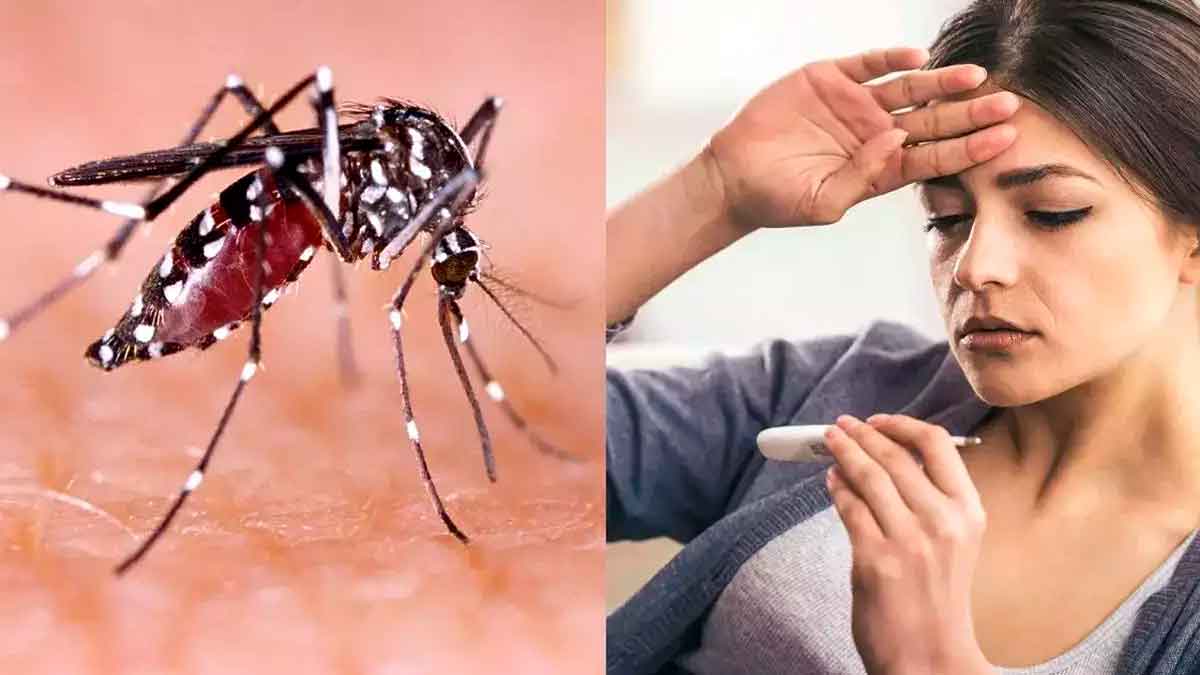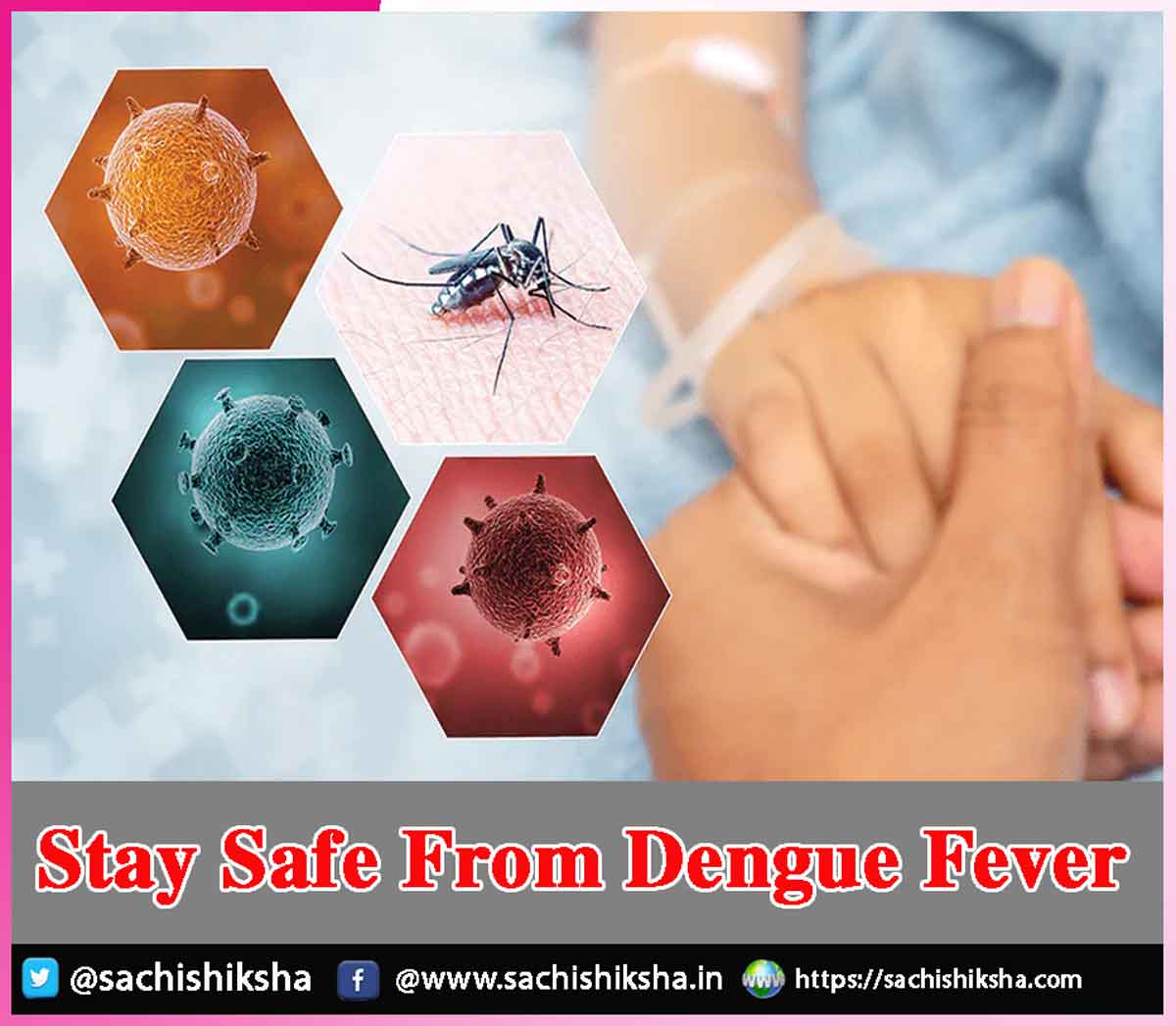Stay Safe From Dengue Fever
Introduction: Dengue is a serious viral disease caused by the bite of Aedes mosquitoes. These mosquitoes are most active during the day, especially in the morning and evening. Dengue fever spreads rapidly and can be fatal if not treated promptly. Let us discuss the symptoms, preventive measures, precautions, and proper diet in detail.
Table of Contents
Dengue Symptoms
The symptoms of dengue fever appear four to ten days after a mosquito bite. Some common symptoms are as follows:
High Fever:
The most common symptom of dengue is a high fever that can rise above 102°F.
Headache:
A severe headache, especially around the forehead, is also a symptom of dengue.
Muscle and Joint Pain:
It is also known as ‘breakbone fever’ because it causes unbearable pain in the muscles and bones.
Pain Behind the Eyes:
Pain behind or around the eyes is another symptom.
Skin Rashes:
Reddish rashes or spots appearing on the body are common in dengue.
Nausea and Vomiting:
In some cases, the patient may experience nausea and vomiting, along with a loss of appetite.
Fatigue and Weakness:
Dengue makes the body very weak, and the patient feels constantly tired.

Dengue Prevention Measures
The best way to prevent dengue is to stop mosquitoes from breeding and to avoid mosquito bites. Here are some important steps to follow:
Use Mosquito Nets:
Use mosquito nets while sleeping, especially for children and the elderly.
Wear Protective Clothing:
Wear light-coloured clothes that cover the body when going out.
Use Mosquito Repellent:
Apply mosquito repellent cream on exposed skin.
Do Not Let Water Accumulate:
Aedes mosquitoes breed in stagnant water, so do not allow water to collect around your home. Empty or clean flower vases, coolers, buckets, and pots regularly.
Install Screens:
Fix screens on windows and doors to prevent mosquitoes from entering.
Get Fogging Done:
Periodic fogging around your home can help reduce mosquito populations.
Precautions for Dengue Patients
A dengue patient should take special precautions to prevent the condition from worsening:
Get Plenty of Rest:
Give the body complete rest so that the immune system remains strong.
Do Not Self-Medicate:
Do not take painkillers or fever reducers without a doctor’s advice. Avoid aspirin and ibuprofen as they can increase the risk of bleeding.
Monitor Platelet Count:
Platelet count can drop rapidly, so it should be checked regularly.
Increase Fluid Intake:
Dengue fever causes dehydration. The patient should drink plenty of water, coconut water, ORS, and other fluids.
Proper Diet in Dengue
Diet plays a crucial role during dengue. A proper diet helps maintain energy levels and promotes faster recovery. The following foods are beneficial:
Papaya Leaf Juice:
Helps increase platelet count.
Coconut Water:
Replenishes electrolytes in the body.
Kiwi and Pomegranate:
Rich in vitamins and minerals; help increase platelet count.
Basil Water:
Basil leaves have antioxidant and antibacterial properties that strengthen immunity.
Green Vegetables:
Contain iron and folic acid, which help in increasing platelets.
Protein-Rich Foods:
Pulses, soya beans, and other protein sources strengthen the immune system.
Dengue is a serious but preventable disease. Through awareness, cleanliness, and proper care, its spread can be controlled. Everyone should keep their homes and surroundings clean to prevent mosquito breeding.












































